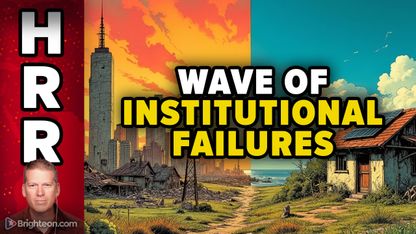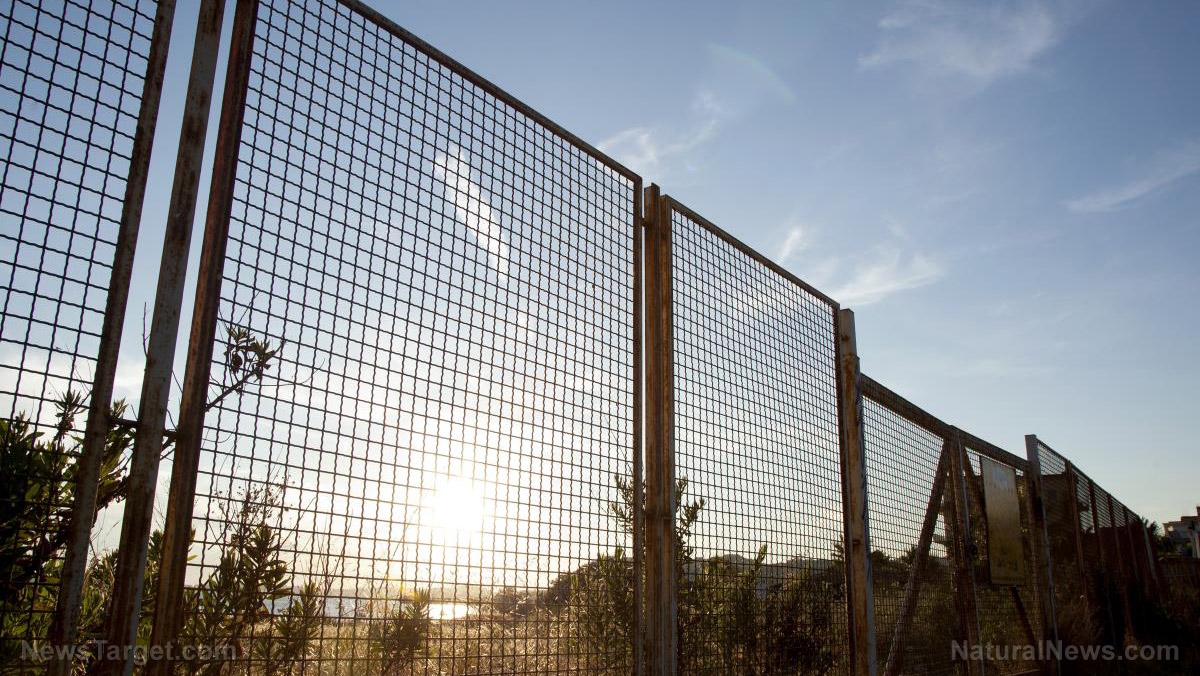
California National Guard members received an unusual order at the onset of the coronavirus (COVID-19) pandemic in March last year.
They expected directives from Sacramento headquarters to make preparations for any civil unrest that might arise over stay-at-home rules. But instead of an order to get the ground troops ready to help state and local authorities, the air branch of the Guard was told to place an F-15C fighter jet on an alert status for a possible domestic mission.
Four sources from the Guard with direct knowledge of the matter told Los Angeles Times that the order didn't spell out the mission. But given the aircraft's limitations, they understood it to mean the plane would be deployed to terrify and disperse protesters by flying low over them at window-rattling speeds – with its afterburners streaming columns of flames.
They know the drill. Fighter jets have been used occasionally in that manner in combat zones in Iraq and Afghanistan, said the sources, who spoke on condition of anonymity because they feared retaliation from their superiors.
Deploying an F-15C, an air-to-air combat jet based at the Guard's 144th Fighter Wing in Fresno to frighten demonstrators would have been an inappropriate use of the military against U.S. civilians.
"It would have been a completely illegal order that would have disgraced the military. one source said. "It could look like we're threatening civilians."
Directives relayed "orally or in text messages"
According to the sources, the directives from Guard headquarters made their way down orally or in text messages, rather than in formal written orders, which was unusual and heightened their concerns that the jet would be used inappropriately.
Maj. Gen. David Baldwin, who leads the California Guard, did not respond to interview requests. A spokesman for Baldwin, Lt. Col. Jonathan Shiroma, denied that the F-15C was placed on an alert status for a potential response to civil disturbances.
"We do not use our planes to frighten or intimidate civilians," Shiroma said.
Shiroma noted that assigning jets at the 144th Wing to respond to civil unrest would have required the approval of First Air Force, which oversees the air defense of the continental United States for the North American Aerospace Defense Command (NORAD). He said the California Guard "never made such a request."
He released a list of aircraft that he said were "postured to support any potential civil unrest missions." It included two planes – a C-130J and an HC-130J – but no fighter jets.
As the head of the California Guard, Baldwin reports to Gov. Gavin Newsom. A spokeswoman said that Newsom never authorized the use of the F-15C for a response to civil unrest, and that the possibility of that type of mission for the jet "was never a consideration before the governor's office."
If it had been, the spokeswoman added, Newsom "would not have approved it." (Related: Trump federalizes the National Guard, deploying tens of thousands of National Guard troops who will carry out their governor's plans.)
F-15C's one and only mission: Shoot down other airplanes
The F-15C can hit supersonic speeds and fire air-to-air missiles, and is outfitted with 20-millimeter cannon. It is expensive to operate, costing nearly $25,000 per flight hour, according to the Guard.
"That jet has one mission and one mission alone – to go up and shoot down other airplanes," said retired Gen. Dave Bakos.
At Fresno, the jets are used to train pilots for combat. Some are kept on around-the-clock alert to respond immediately to attacks by enemy aircraft on orders from the Pentagon as part of NORAD. That federal alert mission is separate from any use of the jets for civilian purposes.
Army Lt. Col. Christian Mitchell, a Pentagon spokesman, said deploying the jet "for dispersing crowds would not be an appropriate use of the F-15."
Dan Woodside, a retired Guard pilot who has flown the F-15C, said that on the few occasions the fighter jet was deployed to assess earthquake damage, it proved nearly useless because it isn't designed for that purpose. The jet has a camera-equipped targeting pod to zero in on enemy aircraft in flight, but F-15C pilots are not trained to use it for air-to-ground surveillance, Woodside said.
Woodside, who held the rank of major, said he "absolutely would have disobeyed" any order to use an F-15C to buzz a civilian crowd during unrest.
"The decibel level alone from an F-15C demonstrating a show of force can break windows, set off car alarms and cause more fear than shouting 'fire' in a crowded theater," he said.
F-15C pilot and launch crew advised to be ready for potential mission during election
The week before the election, a lieutenant colonel sent a message to Guard members who maintain the F-15C, advising them that a jet must be "ready to take off within two hours" beginning the Monday morning before the election. That meant a pilot and launch crew had to be available to reach the Fresno base within 90 minutes or so of receiving an order to deploy the jet, the sources said.
The message also said "aircraft availability" for a domestic mission would be "at a premium next week with the election. We may need to work on Saturday and maybe Sunday to ensure we have aircraft availability" for the potential mission. The sources said the aircraft in question was the F-15C. (Related: Texas National Guard activated, deployed in anticipation of Election Day chaos.)
With concern mounting among Guard officers and others, the then-commander of the 144th Wing, Col. Jeremiah Cruz, sent an email to several officers, saying that "there is no expectation that the F-15C will be used in any way in support of civil unrest." He went on to instruct the recipients to keep him apprised of "any requests or upcoming requests" from California Guard headquarters in Sacramento.
While that order never came, the sources said, the fact that their leaders might even consider using the F-15C over civilian crowds alarmed Guard members.
"It's a war machine, not something you use for [suppressing] civil unrest," one of the sources said. He added that readying the F-15C for potential deployment over a protest was "definitely unprecedented" in his experience.
Follow MilitaryTechnology.news to learn more about advanced military technologies and how the government uses them.
Sources include:
Please contact us for more information.




















